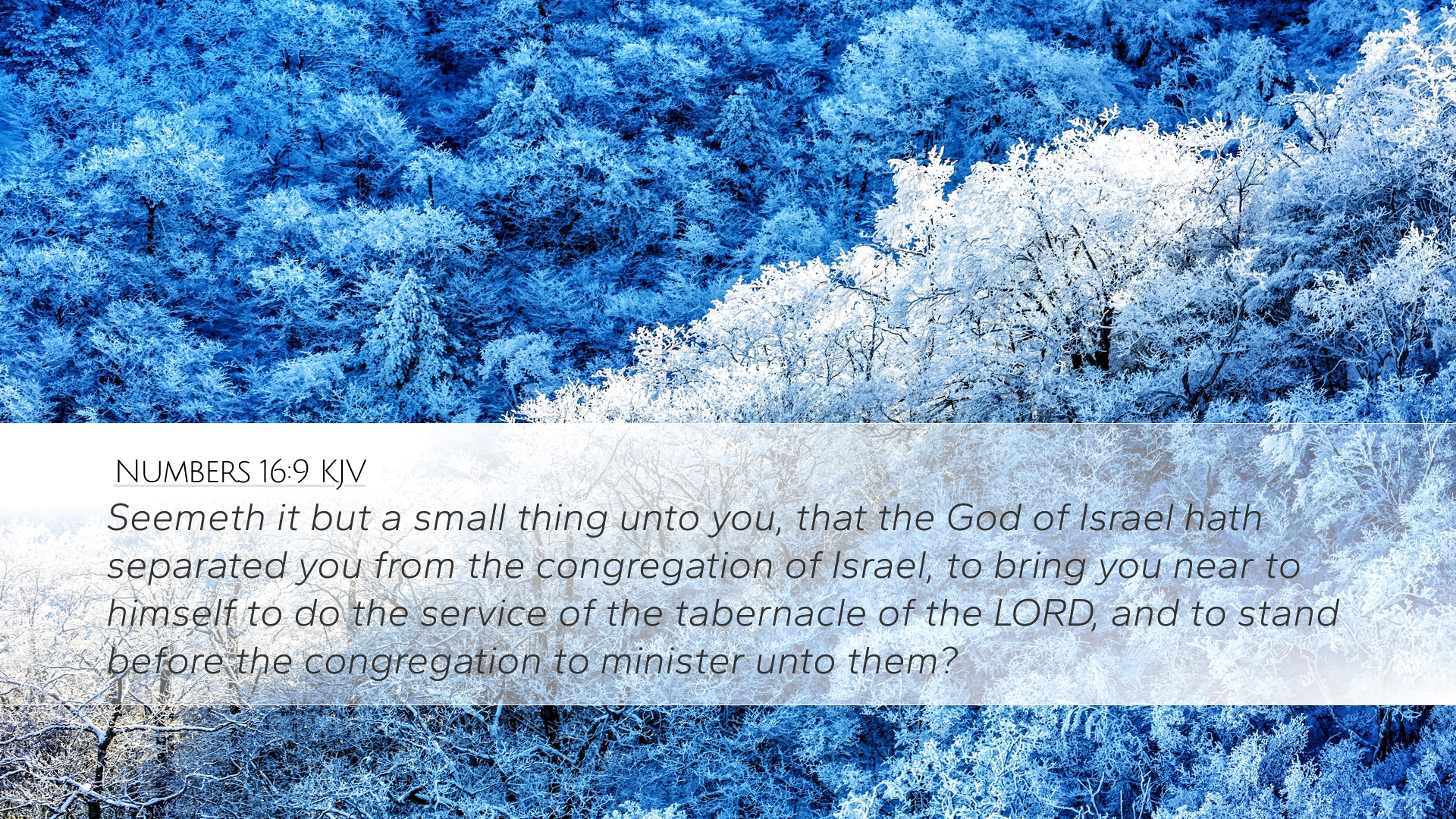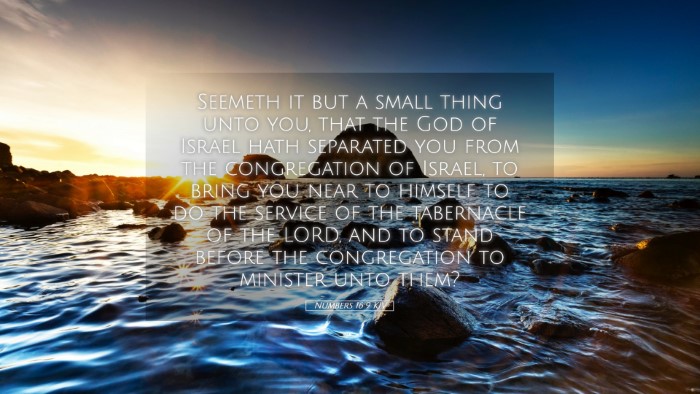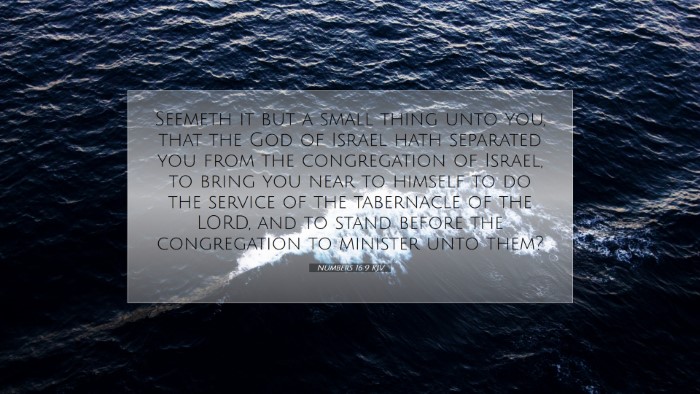Commentary on Numbers 16:9
Verse Context: Numbers 16:9 states, “Is it a small thing that thou hast brought us up out of a land that flowed with milk and honey, to kill us in the wilderness, except thou make thyself altogether a prince over us?” This verse is part of a larger narrative where Korah, Dathan, and Abiram challenge the leadership of Moses and Aaron, questioning God's selection of them as leaders.
Overview
This verse encapsulates core themes of rebellion, divine authority, and the temptations of leadership within the Israelite community. The histories surrounding this episode offer profound insights for pastoral reflection and theological study.
Interpretation of the Text
In this short, yet significant verse, we witness a brazen indictment against Moses, suggesting that the Exodus was insufficient justification for his leadership. The rebels fail to recognize their deliverance from slavery and the dangers of ingratitude.
Korah's Rebellion
Matthew Henry emphasizes that Korah’s rebellion stems from human nature's tendency to covet authority and respect. His grievance shows a hubris that reflects a lack of understanding of God’s ordered governance over Israel. This challenge was not merely against Moses but ultimately against God's chosen leadership.
Ingrate Attitude
Albert Barnes elucidates the irony in their complaint; they refer to Egypt—a land characterized not only by abundance but also by their subjugation. This demonstrates profound spiritual blindness and an unwillingness to acknowledge the miraculous redemptive act of the Exodus.
Leadership and Authority
Adam Clarke notes that the phrase “to kill us” reflects an extreme and unfounded accusation against Moses, illustrating how discontent can distort reality. Clarke associates this with the dangers of leading the people, as their grievances reveal a hostile attitude towards divinely appointed authority.
Theological Reflections
This passage draws attention to the vital theme of submission to God-ordained leadership. The rebellion presented by Korah and his associates presents a timeless struggle regarding authority within the church and its applications to modern pastoral ministry.
God’s Sovereignty
This episode underscores God’s sovereignty in raising leaders and His ability to establish authority in the church. Matt Henry emphasizes that when individuals question God’s sovereignty, they risk dismantling the spiritual order established by God.
The Consequences of Rebellion
Both Barnes and Clarke point out the ensuing judgment that accompanies rebellion against rightful authority. The gravity of the revolt evokes serious caution for contemporary audiences about the implications of discontent and dissent within church structures.
Gratitude and Spiritual Perception
Reflecting on this narrative encourages deeper gratitude for God’s past deliverances and His ongoing providence. Matthew Henry suggests that recognizing God’s grace becomes a shield against rebellion and ingratitude, vital for any believer’s life.
Practical Applications
This verse serves as a poignant reminder for pastors, students, and theologians in several ways:
- Embrace Leadership with Humility: Leaders must remain vigilant against pride and recognize their role as servants appointed by God.
- Foster a Spirit of Gratitude: Constantly remind the congregation of God’s faithfulness to cultivate an attitude of thankfulness.
- Encourage Open Dialogue: Address grievances in a way that reflects biblical principles, emphasizing the need for resolution without rebellion.
- Study Divine Comfort in Chaos: In times of dissent, reflect on God’s assurance and His sovereign will unfolding despite human objections.
Conclusion
Numbers 16:9 is a singular verse steeped in rich theological implications ranging from the nature of divine authority to the grave dangers of rebel attitudes. For pastors and scholars, the lessons drawn from this incident provide a crucial framework for understanding leadership dynamics in both ecclesiastical and everyday contexts.


